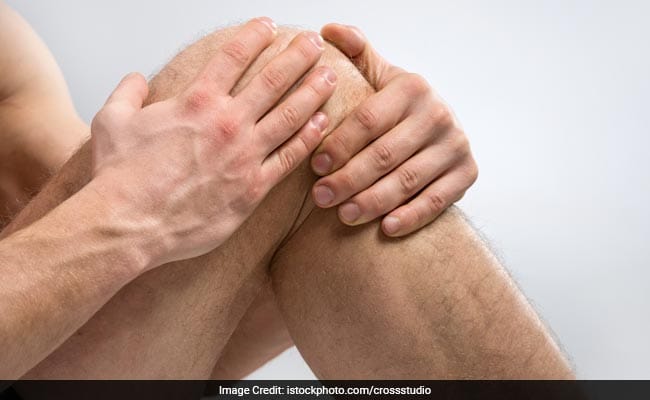The internet is bombarded with information regarding health, nutrition and well being. But which one should you trust? Read here to know.

Eggs aren't as bad for your heart health as you thought them to be
HIGHLIGHTS
- It's not necessary to count the times when you had water
- Eggs are good for your health
- Cracking of joints does not mean you have arthritis
Have you ever been able to make a choice about the right diet or exercise plan for good health? We bet you haven't! This is because there is so much information on the internet on some common topics like weight loss, nutrition, cancer, high blood pressure and diabetes, that many users end being confused as to what is the right path to follow. So, today we are going to talk about some of the most popular health myths or health facts that you must stop believing right now!
Also read: Seven Popular Health Myths Debunked!
Top health facts that are totally wrong:
1. Drink 8 glasses of water: While it is quite important to stay hydrated good health, digestive system, skin and much more, it is not an absolute necessary to count the number of glasses. Drinking enough water whenever you're thirsty is enough to hydrate you and keep you healthy. Hydration can be further improved by including hydrating foods in your diet like fruits, soups and vegetables. Also, drink more water f your urine is dark yellow or if you don't urinate regularly.
2. Eggs are bad for your heart: Well, they are not! Eating an egg or two is surely not going to increase risk of heart disease. Eat the whole egg and do not leave the yolk. Egg yolk is filled with numerous beneficial minerals and fats essential for your body. Protein-rich eggs are one of the healthiest foods on planet. Consult your doctor about their consumption, even if you are a heart or high cholesterol patient.

Protein-rich eggs are one of the healthiest foods on planet
Photo Credit: iStock
3. Being in cold environment can give you a cold: This is not true. According to WebMD, a study found that healthy men who spent hours in temperatures just a little above freezing experienced an increase in virus-fighting activity in their immune system. What's more is that you are more likely to get sick indoors where germs can pass easily.
4. You need multivitamins: The best way to get your daily dose of vitamins is from food, and not supplements. However, if your doctor suggests taking multivitamins, then you must take them. Vitamin deficiencies in your body can best be met by including fruits, vegetables, whole grains, nuts and seeds in your diet.
Also read: International Men's Health Week: 5 Early Signs Of Cancer You Shouldn't Be Ignoring
5. Green mucus means infection: Studies have shown that green or yellow mucus is common in case of bacterial infections. However, green or yellow mucus is not a sure sign that you need antibiotics. A sinus infection make you have clear mucus, and a common cold can turn it into green.
6. Toilet seat can make you fall sick: It is important to know that toilet seats may be dirty, but what can be dirtier and covered with harmful bacteria and virus are bathroom doors, door handles and floors. When using public washrooms, it is better to cover your hands with paper towel before you touch doors or handles. Use hand sanitiser before and after touching the doors and knobs and wash your hands with handwash after using the toilet.
7. Cracking joints means you have arthritis: Cracking joints usually occur because of formation of gas bubble that forms between bones. Cracking of joints does not mean that you have arthritis. In case you feel pain while your joints make the sound, get it checked by a doctor.

Cracking joints does not mean you have arthritis
Photo Credit: iStock
Disclaimer: This content including advice provides generic information only. It is in no way a substitute for qualified medical opinion. Always consult a specialist or your own doctor for more information. NDTV does not claim responsibility for this information.
DoctorNDTV is the one stop site for all your health needs providing the most credible health information, health news and tips with expert advice on healthy living, diet plans, informative videos etc. You can get the most relevant and accurate info you need about health problems like diabetes, cancer, pregnancy, HIV and AIDS, weight loss and many other lifestyle diseases. We have a panel of over 350 experts who help us develop content by giving their valuable inputs and bringing to us the latest in the world of healthcare.














